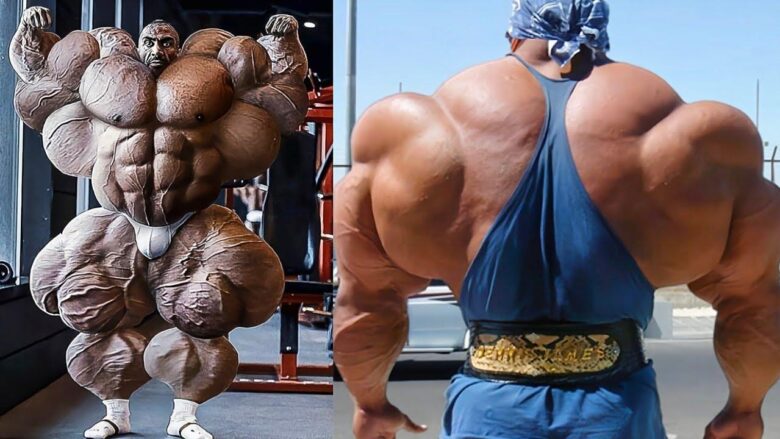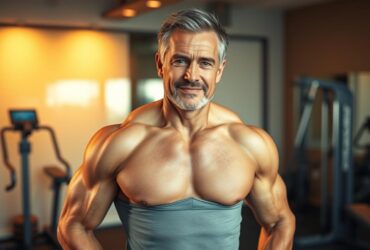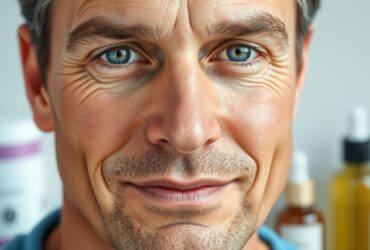Title: ”Elevating Performance: The Role of Testosterone Therapy in Bodybuilding”
Introduction:
In the vibrant world of bodybuilding, where sculpted physiques and unwavering dedication reign supreme, athletes are constantly seeking that elusive edge in their quest for peak performance. Among the myriad of strategies employed to enhance muscle growth and recovery, testosterone therapy has emerged as a topic of both fascination and controversy. As bodybuilders push their bodies to the limits, the potential benefits and risks of hormone replacement therapy invite scrutiny and debate. This article delves into the science behind testosterone therapy, exploring its capabilities, implications, and underscoring the importance of informed decision-making in the pursuit of excellence within the sport. Whether you’re a seasoned competitor or a fitness novice, understanding the intricacies of this therapy is essential in navigating the delicate balance between enhancement and health.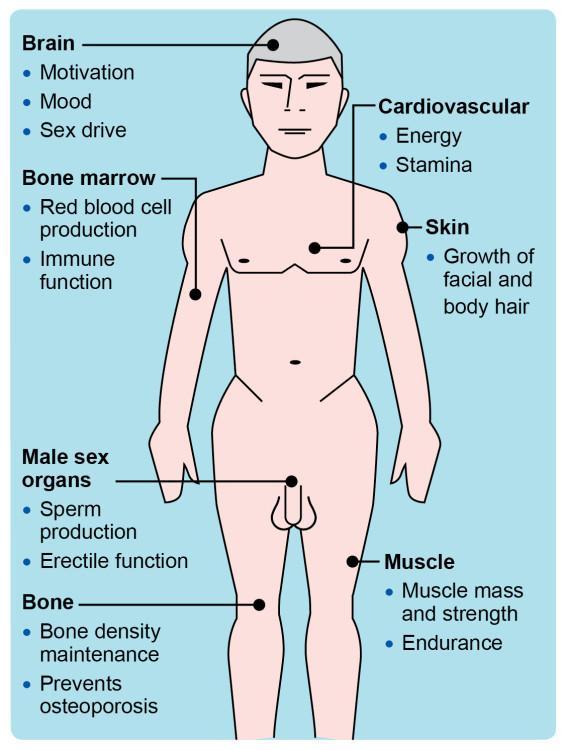
Understanding Testosterones Role in Muscle Growth
Testosterone is a vital hormone that plays a crucial role in the process of muscle growth and regeneration. It promotes protein synthesis, which is essential for building muscle tissue. When testosterone levels are optimal, muscle fibers can repair and grow more efficiently after a workout, leading to enhanced strength and performance. Additionally, testosterone contributes to increased red blood cell production, improving oxygen delivery to muscles during intense training sessions. This allows athletes to train harder and for longer periods, providing a definite edge in both endurance and muscle mass increases.
Moreover, the relationship between testosterone and muscle growth can also be influenced by several factors including age, diet, and workout intensity. Bodybuilders particularly benefit from understanding how consistent training and proper nutrition can naturally support testosterone levels. Incorporating healthy fats, proteins, and vitamins into the diet can help maintain hormonal balance. The impacts of testosterone extend beyond mere muscle growth; it can also improve mood, energy levels, and overall motivation, which are vital components in any training regime. Here’s a simple comparison of how testosterone influences different aspects of bodybuilding:
| Aspect | Testosterone Influence |
|---|---|
| Muscle Mass | Increases lean muscle tissue |
| Recovery Time | Reduces time needed for recovery |
| Strength | Enhances overall strength levels |
| Energy | Boosts energy for workouts |
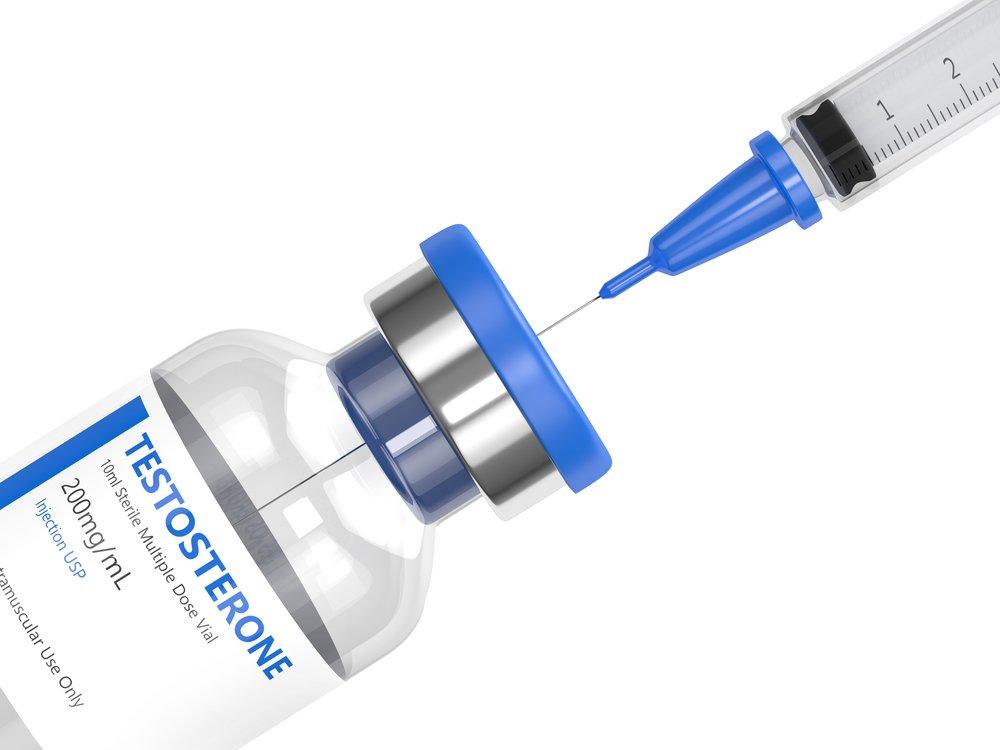
Evaluating the Benefits of Testosterone Therapy for Bodybuilders
Testosterone therapy can significantly enhance the performance and physique of bodybuilders by promoting muscle hypertrophy and improving recovery times. Many athletes have reported advantages such as:
- Increased Muscle Mass: Elevating testosterone levels often results in greater muscle growth, allowing bodybuilders to achieve their desired physique more effectively.
- Enhanced Recovery: Testosterone helps muscle tissue repair more rapidly, allowing for more frequent and intense training sessions.
- Improved Energy Levels: Many users experience a boost in energy and stamina, which can lead to improved overall workout performance.
- Increased Motivation: Higher testosterone levels can elevate mood and motivation, making it easier to stay committed to rigorous training routines.
However, it’s essential to approach testosterone therapy with caution and awareness of potential side effects. Understanding dosage and monitoring health is vital for maximizing benefits while minimizing risks. Some key considerations include:
| Consideration | Details |
|---|---|
| Consultation with Specialists | Always work with healthcare providers experienced in hormone therapy. |
| Regular Monitoring | Continuous blood tests to track hormone levels and overall health. |
| Adverse Effects | Avoid potential risks such as mood swings, fertility issues, or cardiovascular concerns. |
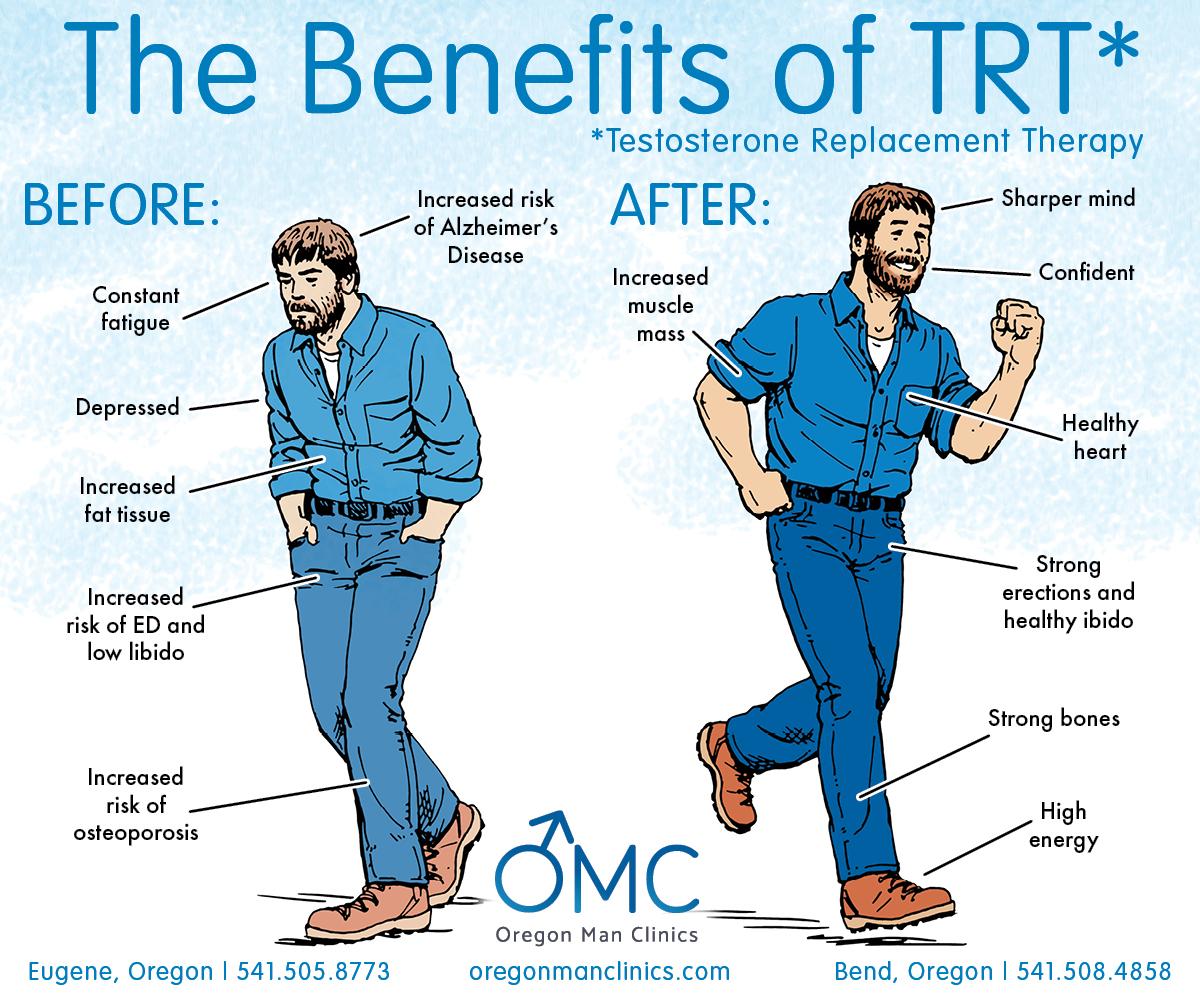
Identifying the Risks and Side Effects of Testosterone Treatment
When considering testosterone therapy, it is crucial to understand that potential benefits come with a range of risks and side effects. Some common risks associated with testosterone treatment include:
- Cardiovascular Issues: Increased risk of heart attack or stroke, particularly in individuals with pre-existing conditions.
- Hormonal Imbalances: Disruptions in natural hormone levels, which can lead to infertility and other endocrine disorders.
- Psychological Effects: Mood swings, increased aggression, or anxiety, sometimes referred to as “roid rage”.
- Liver Damage: Potential liver toxicity, especially with oral testosterone forms.
Additionally, side effects of testosterone therapy can vary widely among individuals. It’s valuable to monitor the following:
| Side Effect | Frequency |
|---|---|
| Acne | Common |
| Hair Loss | Moderate |
| Gynecomastia | Occasional |
| Sleep Apnea | Variable |
As such, thorough consultation with a healthcare provider is essential for any bodybuilder considering this treatment, to mitigate risks and monitor any adverse effects closely.
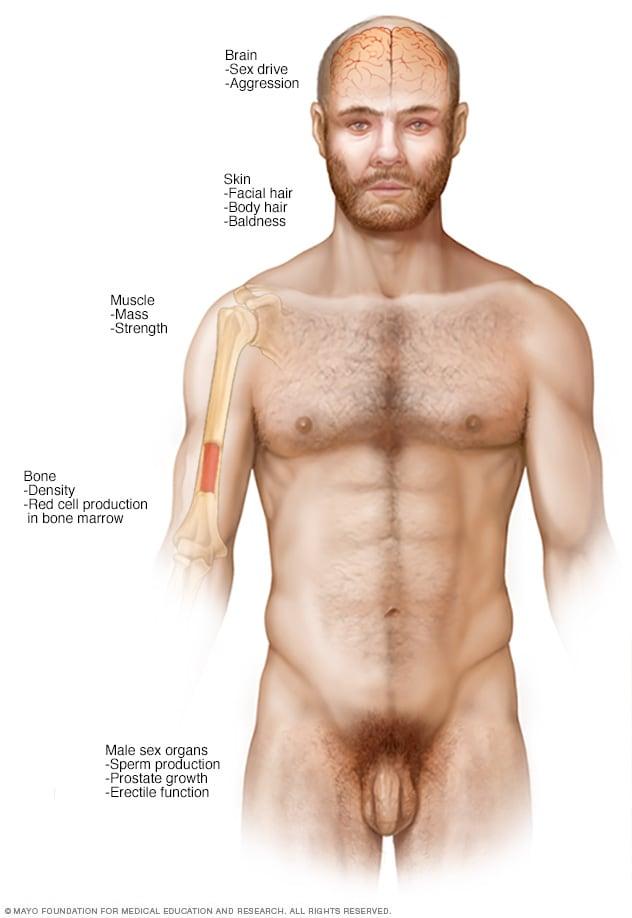
Choosing the Right Dosage: A Guide for Bodybuilders
Determining the appropriate dosage for testosterone therapy is crucial for maximizing muscle growth while minimizing side effects. Bodybuilders often embark on this journey to enhance performance, but understanding the right dosage is key to achieving the desired results safely. It’s essential to consult with a physician who specializes in hormone therapy to tailor a regimen that fits individual health profiles and bodybuilding goals. Considerations such as age, weight, fitness level, and overall health can significantly impact the effectiveness of testosterone therapy. It is important to monitor testosterone levels through regular blood tests to ensure the therapy maintains optimal hormonal balance.
When establishing a dosage plan, bodybuilders should also consider the following factors:
- Frequency of Administration: Approaches can vary from daily injections to weekly doses.
- Form of Testosterone: Options include injections, gels, and pellets, each with different absorption rates and effects.
- Stacking with Other Supplements: Some may choose to combine testosterone therapy with other performance-enhancing substances, though this requires careful management.
Here’s a quick reference table for common testosterone dosages:
| Form | Typical Weekly Dosage |
|---|---|
| Injections (Testosterone Enanthate) | 200-600 mg |
| Gels (AndroGel) | 50-100 mg/day |
| Pellets | 1000-2000 mg every 3-6 months |
Ultimately, individual experience may vary, and it is vital to adjust dosages based on feedback from the body to establish a safe and effective testosterone therapy that aligns with bodybuilding ambitions.
Monitoring Hormonal Balance: Testing and Adjustments
Effective monitoring of hormonal balance is essential for bodybuilders undergoing testosterone therapy. Regular testing allows individuals to assess their hormone levels accurately and identify any imbalances that might hinder their progress. Common tests include:
- Serum testosterone levels
- Free testosterone measurement
- SHBG (Sex Hormone-Binding Globulin)
- Estrogen levels
Based on the results of these tests, it may be necessary to make adjustments to the therapy protocol. This could involve modifying dosage or changing the delivery method of testosterone. Additionally, monitoring for side effects is crucial. Common adjustments may include:
- Switching to a different form of testosterone (e.g., gels, injections)
- Incorporating aromatase inhibitors to manage estrogen levels
- Adjusting frequency of administration
| Test Type | Frequency | Purpose |
|---|---|---|
| Serum Testosterone | Every 3-6 months | Baseline and therapeutic levels |
| SHBG | Annually | Assess binding capacity |
| Estrogen | Every 6 months | Monitor for excess estrogen |
Complementary Strategies: Nutrition and Training for Optimal Results
To maximize the benefits of testosterone therapy, a synergistic approach incorporating both nutrition and training is essential. Proper nutrition plays a crucial role in elevating energy levels, promoting muscle growth, and facilitating recovery. Focus on a diet rich in:
- Lean proteins – Sources like chicken, fish, and plant-based options aid in muscle synthesis.
- Healthy fats – Incorporate avocados, nuts, and olive oil to support hormone production.
- Complex carbohydrates – Whole grains, fruits, and vegetables provide necessary energy for intense workouts.
Alongside adequate nutrition, a well-structured training program enhances the effectiveness of testosterone therapy. Aim for a balance of strength training and aerobic exercise, ensuring progressive overload to stimulate muscle adaptation. Consider a routine that includes:
- Compound movements - Squats, deadlifts, and bench presses to engage multiple muscle groups.
- High-Intensity Interval Training (HIIT) - Short bursts of intense exercise improve cardiovascular fitness and metabolic rate.
- Rest and recovery – Prioritize sleep and recovery days to optimize hormone levels and repair muscle tissue.
Making Informed Decisions: Consulting Healthcare Professionals
Engaging with healthcare professionals should be a fundamental part of your journey into testosterone therapy. Tailoring a regimen that supports your bodybuilding goals requires expert guidance to ensure safety and efficacy. Doctors can conduct thorough assessments which include blood tests to measure testosterone levels and evaluate overall health. These professionals will look into crucial factors such as:
- Medical History: Understanding past and present health issues.
- Body Composition: Analyzing muscle mass and fat distribution.
- Recovery Capacity: Assessing how your body responds to training.
Furthermore, consulting with endocrinologists or sports medicine specialists can provide insights into the potential risks associated with testosterone therapy, such as hormonal imbalances and cardiovascular implications. They can help you understand the impact of various testosterone formulations and the appropriate dosages for bodybuilding goals. Here’s a comparison of common testosterone delivery methods:
| Delivery Method | Frequency | Pros | Cons |
|---|---|---|---|
| Injections | Every 1-2 weeks | Fast-acting, precise dosage | Pain at injection site |
| Gels | Daily | Easy application, consistent levels | Skin irritation |
| Patches | Daily | Continuous absorption | Visibility, potential skin reactions |
Q&A
Q&A: The Inside Scoop on Testosterone Therapy for Bodybuilders
Q1: What exactly is testosterone therapy?
A1: Testosterone therapy involves the administration of testosterone to individuals whose bodies do not produce sufficient amounts of this critical hormone. It can come in various forms, including injections, gels, patches, or pellets. For bodybuilders, it’s often seen as a way to enhance muscle mass, strength, and recovery.
Q2: Why do bodybuilders consider testosterone therapy?
A2: Bodybuilders may consider testosterone therapy to boost their hormone levels, especially as they age or if they experience symptoms of low testosterone, such as fatigue, decreased libido, and lost motivation. The appeal lies in the potential for increased muscle growth, improved recovery time, and enhanced overall performance.
Q3: Is testosterone therapy safe for bodybuilders?
A3: The safety of testosterone therapy can vary significantly based on individual health conditions, dosages, and adherence to medical guidelines. While many users report positive effects, improper use can lead to adverse outcomes, including cardiovascular issues, liver damage, or hormonal imbalances. Consulting a healthcare professional before starting therapy is essential.
Q4: What are the potential benefits of testosterone therapy for bodybuilders?
A4: The potential benefits of testosterone therapy include increased muscle mass, enhanced fat loss, improved strength and endurance, boosted energy levels, and better mood regulation. Many bodybuilders report quicker recovery between workouts and an overall improved exercise performance.
Q5: Are there risks or side effects associated with testosterone therapy?
A5: Yes, there are potential risks and side effects associated with testosterone therapy, such as acne, mood swings, hair loss, increased aggression, and sleep apnea. More severe risks can include the possibility of developing blood clots, heart disease, or prostate cancer. Monitoring and regular check-ups with a healthcare provider are crucial for managing these risks.
Q6: How does testosterone therapy differ from anabolic steroids?
A6: While both testosterone therapy and anabolic steroids aim to boost testosterone levels, they differ primarily in their purpose and regulation. Testosterone therapy is medically prescribed for legitimate health issues, while anabolic steroids are often used illicitly for performance enhancement and can have more severe side effects. Steroids may also be taken in far higher doses than those prescribed in therapy.
Q7: Who should avoid testosterone therapy?
A7: Individuals with certain health conditions, such as prostate cancer, breast cancer, heart disease, or severe liver disorders, should avoid testosterone therapy. Additionally, those who are seeking it purely for performance enhancement without medical guidance may be putting themselves at unnecessary risk. A healthcare professional can help determine if therapy is appropriate.
Q8: What are some alternatives to testosterone therapy for bodybuilders?
A8: Alternatives to testosterone therapy include natural methods to boost testosterone levels, such as strength training, a balanced diet rich in healthy fats, maintaining a healthy weight, and ensuring sufficient sleep. Supplements, like vitamin D and zinc, may also support testosterone production, although they should be approached cautiously and ideally under medical supervision.
Q9: What should bodybuilders consider before starting testosterone therapy?
A9: Bodybuilders should consider the potential health risks, the legality and ethics of usage in their sport, and the importance of ongoing monitoring and support from healthcare professionals. Understanding personal health status, exploring natural enhancement methods, and weighing the pros and cons thoroughly is essential before diving into testosterone therapy.
Q10: How can bodybuilders ensure responsible usage of testosterone therapy?
A10: To ensure responsible usage of testosterone therapy, bodybuilders should seek guidance from qualified healthcare providers, undergo comprehensive blood tests to establish baseline hormone levels, and adhere strictly to prescribed dosages. Regular follow-ups and health assessments will help mitigate risks while optimizing the benefits of therapy. Always prioritize health and safety above all else.
Insights and Conclusions
As we draw the curtains on our exploration of testosterone therapy for bodybuilders, it’s clear that this topic is as multifaceted as the athletes it affects. The quest for peak performance often leads to choices that spark both debate and discovery. While testosterone therapy can offer tangible benefits in terms of strength, recovery, and muscle growth, it’s essential for bodybuilders to navigate this complex landscape with caution and informed decision-making.
With science continually evolving, staying abreast of the latest research is paramount. It’s equally crucial to prioritize health by consulting healthcare professionals who can provide personalized guidance. Remember, true strength isn’t just measured in pounds lifted but also in the wisdom to make choices that support long-term wellbeing. Whether you’re considering testosterone therapy or simply seeking to enhance your fitness journey, may your path be informed, safe, and ultimately rewarding. Take charge, stay educated, and build success both in and out of the gym.

